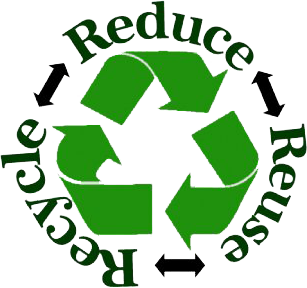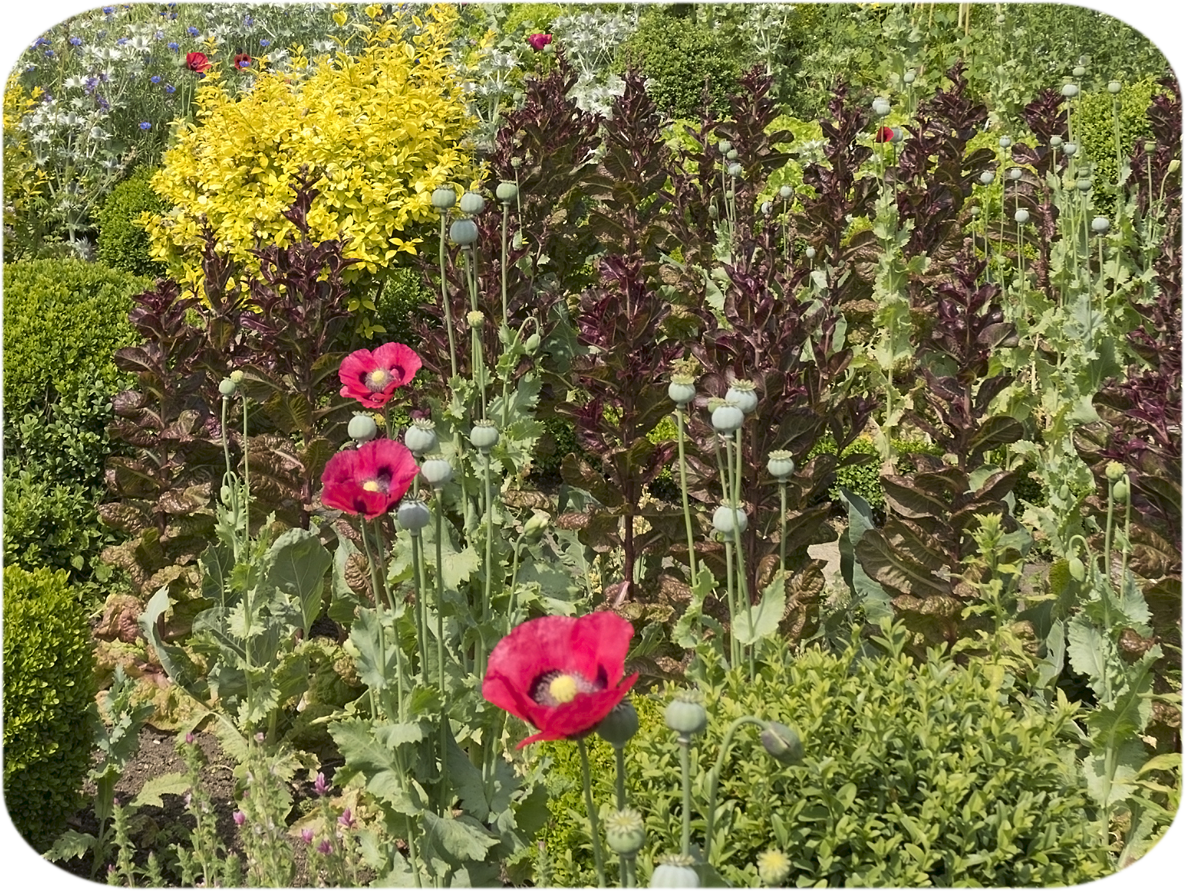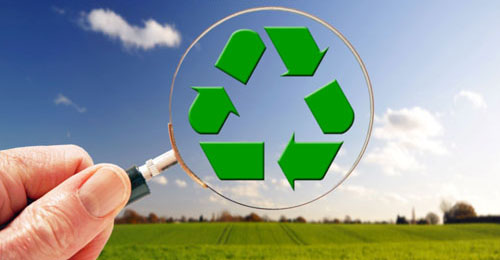About Us
MHC's environmental justice ministry celebrates God's creaton in our parish and on our church grounds.
We meet the second Wednesday of January, March, May, September, and November at 2:30pm in St. Francis Hall.
MHC's environmental justice ministry celebrates God's creaton in our parish and on our church grounds.
We meet the second Wednesday of January, March, May, September, and November at 2:30pm in St. Francis Hall.

The recycling triangle states "Reduce, Reuse and Recycle." Each of these terms is used in its position of importance. "Reduce", the most preferable option, is consistent with our Catholic tradition of avoiding materialism. "Reuse" supports both donating and buying at thrift stores and Habitat For Humanity Restores. "Recycling" not only reduces our waste stream and energy consumption, the recycling bin is a "witness" to your neighbors and passers-by that you care about God's Creation and your Carbon Footprint.

Join us as we celebrate our beautiful MHC Parish Garden with a garden blessing on Monday, May 20 after morning Mass on the Feast of the Blessed Virgin Mary, Mother of the Church. The Garden is located behind the Parish Center near the playground. All are welcome!!!

Through photosynthesis houseplants convert the carbon dioxide we exhale into fresh oxygen and they can
also remove toxins from the air we breathe. One NASA experiment in 1989, found that indoor plants can
scrub the air of cancer causing volatile organic compounds like formaldehyde and benzene. Later research
has found that soil microorganisms in potted plants also play a part in cleaning indoor air.
Some plants that are easy care, colorful and safe around children and pets are: Christmas cactus, African
violets, baby rubber plants, Swedish ivy, prayer plants and parlor palm. Enjoy these colorful, easy care,
nontoxic plants as you make your home air cleaner.
Walking is good for health and also protects our environment in the areas listed below:
AIR POLLUTION: If we have short trips to make, it is more helpful for air quality to walk. Air
pollution emissions from starting a motor vehicle is at its greatest at that point.
NOISE POLLUTION: Noise levels in congested traffic areas provide a huge and serious noise
pollution atmosphere. Most urban areas have hospitals, schools, churches and community buildings
on main thoroughfares with little buffering or soundproofing.
CLIMATE CHANGE: The creation of greenhouse gas emission from motor vehicles contributes a large
impact to global warming. With rising numbers of these vehicles, the effect is only going to
increase the damage to our delicate environment situation.
ECONOMIC SAVINGS: Of course, if one walks you eliminate the expenses associated with use of
an auto.
In our current fragile environment, the need for food production is essential for keeping the world’s population
fed. According to National Geographic, one third of the food consumed by humans is a result of pollinators doing
their job on our farms and in our backyard gardens. Thus, we should offer these pollinators plants that attract them.
Consider the space and type of plant that suits your garden. It is helpful to select plants that bloom at various
times across the growing season.
The following list will help you get started: Calendula, Pincushion, Bachelor Buttons, Marigold, Salvia,
Nasturtium, Lavender, Cosmos, Verbena, Borage, Anise, Hyssop, Heliotrope, Yarrow, Oregano, Sunflowers,
Coneflowers, Zinnia, Blazing Meadow Star, Penstemon, Aster, Goldenrod, Bee Balm
Residential lighting consumes 2% of all our nation’s energy usage. Hopefully you have replaced all your incandescent and CFL light bulbs with LEDs. One more
step to lower our carbon footprint and electricity costs is to replace regular LEDs with motion sensing LED light bulbs. Their cost has come down considerably.
Motion sensing LED light bulbs avoid the need for a separately-installed sensor. Although they are mostly recommended for outdoors, they can easily be installed in
closets, stairwells and unoccupied rooms. The only problem is that energy-conscious parents will have to find some other way to teach their children conservation than
“You forgot to turn off the lights when you left the room, AGAIN!
All across our country, Catholics are taking the St. Francis Pledge to Care for Creation and the Poor and joining the
Catholic Climate Covenant. The St. Francis Pledge is a promise and a commitment by Catholic individuals, families, parishes, organizations
and institutions to live our faith by protecting God's Creation and advocating on behalf of people in poverty who face the harshest
impacts of global climate change.
To join the Covenant, you commit to act on each of the five elements of the St. Francis Pledge...
I / We Pledge to:
Copyright 2025. All Rights Reserved.